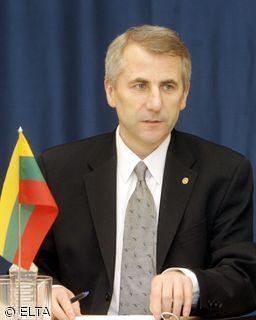Gradual reduction of the tax burden on economic entities will continue next year, together with easing taxation procedures, Finance Minister of Uzbekistan said Tuesday
Published:
1 December 2004 y., Wednesday
Gradual reduction of the tax burden on economic entities will continue next year, together with easing taxation procedures, Finance Minister of Uzbekistan said Tuesday.
Income (profit) tax for legal entities will be reduced from 18% to 15% in 2005, Saidahmad Rakhimov said, adding that tax for microfirms and small entities will be cut from 13% to 12%.
State budget deficit for 2005 is planned at 1% of the GDP, and will be covered by non-inflation sources, the minister said in his report at the session of the Oliy Majlis Committee for Budget, Banking and Financial Issues.
Speaking on the expected implementation of the state budget in 2004 and draft budget for 2005, Rakhimov said current revenues of the budget in the first nine months of this year increased 4.4% year-on-year, which will allow increasing expenses for social support by more than 10 billion soums.
The minister went on to say that the government was planning measures aimed at further economic development of the country, strengthening national currency, increasing social support and optimising state expenditures next year.
The particular attention will be given to implementation of the state school education development programme, improvement of healthcare and sports, and financing social allowances.
Wages to employees of state structures and student stipends and social allowances may be increased, Rakhimov added.
The deputies considered issues included in the agenda of the 16th Oliy Majlis session, which will start on 2 December, including draft law on saving pension provision and other issues within the committee’s competence.
Šaltinis:
UzReport.com
Copying, publishing, announcing any information from the News.lt portal without written permission of News.lt editorial office is prohibited.
The most popular articles
 When you fill up your car with petrol you often find that your hand will reek of petrol unless you have worn gloves.
more »
When you fill up your car with petrol you often find that your hand will reek of petrol unless you have worn gloves.
more »
 The EU is going through its worst recession since WWII. Inflation has slowed, but employment and public finances are hard hit. The situation should stabilise in 2010.
more »
The EU is going through its worst recession since WWII. Inflation has slowed, but employment and public finances are hard hit. The situation should stabilise in 2010.
more »
 In the current economic environment, banks should carefully analyze the current and future total cost of ownership of their technology assets, and evaluate the outsourcing alternative.
more »
In the current economic environment, banks should carefully analyze the current and future total cost of ownership of their technology assets, and evaluate the outsourcing alternative.
more »
 Commission proposes first EU law on hedge funds and issues guidelines on bank pay practices.
more »
Commission proposes first EU law on hedge funds and issues guidelines on bank pay practices.
more »
 On 30 April, Lithuania’s Minister of Foreign Affairs Vygaudas Ušackas took part in the round table discussion “The European Union’s External Trade Policy and Lithuania’s Positions: Threats and Possibilities for the Lithuanian Industry”.
more »
On 30 April, Lithuania’s Minister of Foreign Affairs Vygaudas Ušackas took part in the round table discussion “The European Union’s External Trade Policy and Lithuania’s Positions: Threats and Possibilities for the Lithuanian Industry”.
more »
 Since 28 April this year, the clients of AB Bank SNORAS will be able to process their financial matters in a clearer and more user-friendly environment of “Internet Bank+” system.
more »
Since 28 April this year, the clients of AB Bank SNORAS will be able to process their financial matters in a clearer and more user-friendly environment of “Internet Bank+” system.
more »
 2009 ageing report: Europe tackling the challenge of an ageing population but the recession threatens a setback.
more »
2009 ageing report: Europe tackling the challenge of an ageing population but the recession threatens a setback.
more »
 More choice, investment and security of supply lie at the heart of the 3rd energy package.
more »
More choice, investment and security of supply lie at the heart of the 3rd energy package.
more »
 Swine flu, a new strain of influenza, has so far left more than a hundred dead. But in one sector, the illness could have huge benefits.
more »
Swine flu, a new strain of influenza, has so far left more than a hundred dead. But in one sector, the illness could have huge benefits.
more »
 Central European bargain hunters are crossing borders for the best buys. Slovakian shoppers in Hungary are making the most of their new eurozone membership.
more »
Central European bargain hunters are crossing borders for the best buys. Slovakian shoppers in Hungary are making the most of their new eurozone membership.
more »